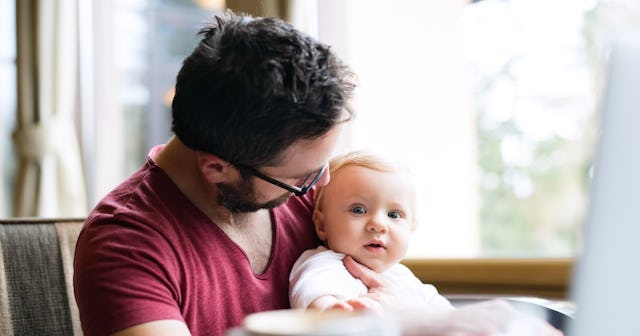Science Says Kids Do NOT Trust Men With Beards, Sorry Guys

Though facial hair is more popular than ever for men, it seems the kids are just not alright about it
A new study says that children are more likely to be suspicious of men with facial hair — yep, that goes for all the trendy, bearded dads and uncles out there too. But the fear is more prevalent among strangers, and really, can we blame them? A hairy rando can be extremely suspect to an unknowing child (or grown woman, let’s be honest).
The study, published in the Evolution and Human Behavior Journal, suggests that kids don’t really learn how to appreciate beards until they reach puberty — which could have something to do with the fact that their peers begin to grow facial hair around that time.
Interestingly, studies about the psychological effect of beards and facial hair aren’t super prevalent, even in this day and age where most men wouldn’t be caught dead without a little 5 o’clock shadow. For this reason, Nicole Nelson, of the University of Queensland, worked together with colleagues to gather data about perspectives on facial hair and how they affect the person with the facial hair and those around them.
“Until very recent history, beards were a very prominent element of men’s faces, and so we must have expectations related to those, and it turns out that adults do,” Nelson tells Men’s Variety. “And so we were wondering whether or not all of those expectations emerge in adulthood or if they are there throughout our lives.”
For the study, Nelson and her research team tested 470 children from toddler age through their teenage years. Each time the kids were tested, they were asked to look at a series of photos — in some sets, one photo would feature a man with a beard and the other photo would show that same man with his beard shaved off. When asked for their thoughts and opinions, most kids thought the clean-shaven face looked “best,” while also agreeing that facial hair made the man look either “older” or “stronger.”
“As early as 1 year 9 months, they dislike beards,” Nelson explains. “And kids, as they got older, up to about 13 years, continue to dislike beards even more.”
Those of us who grew up with dads who donned facial hair regularly likely had the opposite experience when dad suddenly went clean-shaven. I recall a particular instance where my own father, who has sported some version of a mustache for the better part of 36 years, shaved it off one afternoon when my sister and I were kids. We were utterly, completely, undeniably horrified and traumatized at the sight of our dad with a bald upper lip — which goes to show that even if we had a different reaction to a lack of facial hair, the hair itself plays a huge role in a kid’s perception.
Once the kids involved in the study reached their teen years, they completely turned their beard preferences around. “So it seems like probably other people’s faces mean different things to children depending on where they are developmentally.”
This article was originally published on